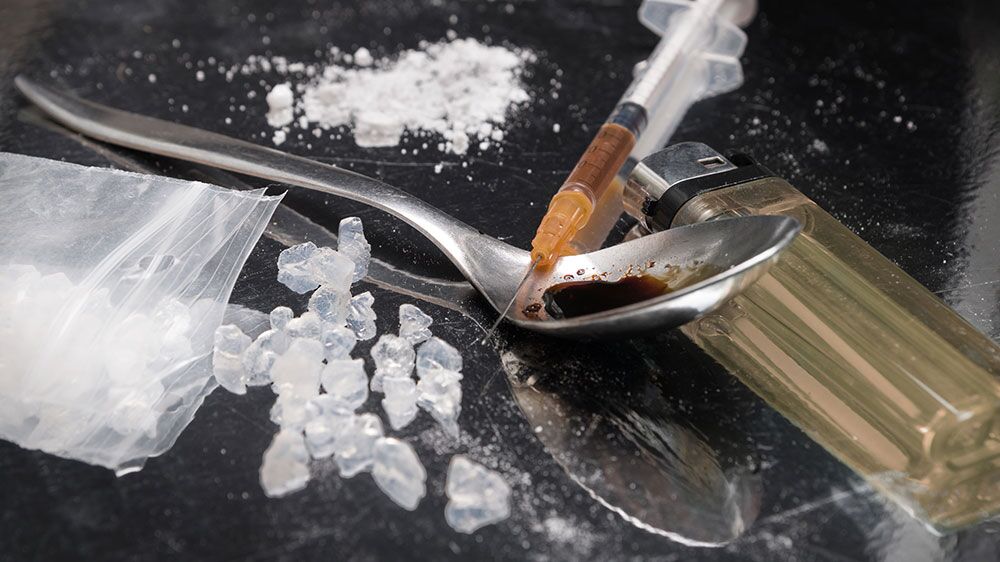
Meth Addiction Treatment
Recovering from meth addiction takes time and demands a comprehensive approach to a treatment plan which entails detox, counseling, and therapy.
The Detox process purges the body of the meth and helps users acclimate into functioning during everyday life sober. Counseling addresses damage that’s occurred psychologically due to substance abuse. Counseling also educates recovering addicts on the proper ways to fight temptation and remain sober.
When it comes to someone suffering from chronic meth addiction, individuals may need to admit themselves into a meth recovery program which entails inpatient or outpatient treatment depending on the severity of the person’s addiction.
Meth is quite literally one of the toughest drugs to break free from people who try to quit alone rarely find long-lasting sobriety.
Inpatient vs. Outpatient
Making the important decision of whether to Choose an outpatient or inpatient drug rehab facility is a big deal. When it comes to getting help with meth addiction, there are a lot of variables to look at. Treating meth can be very challenging because of the addictive nature the drug has in addition to any underlying psychological causes for the substance abuse in the first place.
An inpatient meth treatment program may be the best choice when the person is a chronic user or is suffering from dangerously severe withdrawal symptoms. When this isn’t attempted in a stable environment, the person may relapse and return to the old routine of abuse drugs. Inpatient drug rehabs offer safe places free of triggers. People are able to then reclaim control of their life without relapsing. Meth addiction treatment programs generally last around 30 and 90 days With respect to each individual’s needs.
Outpatient drug rehabilitation programs may work best for people who have weaker addictions. Outpatient drug rehab programs are considered part-time but it’s rehabilitation that allows someone recovering flexibility. Outpatient drug rehab usually requires 10 to 12 hours out of the week at an Addiction treatment facility for detoxification and counseling.
Detox
Detox is the first step in meth addiction treatment, in order to remove all the toxins from the methamphetamine out of the body safely.
Meth detoxification could be either an outpatient or inpatient program, however medical professionals should always monitor detox, especially from a stimulant. Medically supervised detoxification warrants a safe treatment plan that’s more likely to be successful.
Having doctors available to observe each patient and their vitals 24 seven increases the likelihood of success. Medical doctors can’t prescribe meds that help alleviate the symptoms of withdrawal and help keep them stable.
What’s the detoxification process is done, these individuals can go to counseling and seek other services to help in their recovery process. This will ensure they have the knowledge to maintain their recovery and sobriety.
Chronic meth use can result in a pervasive decline in physical and mental health and give rise to a number of devastating symptoms, including:
According to the National Institute on Drug Abuse, 5.4% of individuals over the age of 12 will use meth at some point in their life 2.
Roughly 0.3% of all Americans over 12 yrs old have used meth within the past month, demonstrating a possible ongoing substance addiction problem.
Meth relapse statistics specify that around 61% of meth users will relapse within a year of completing drug abuse treatment.
- Anxiety
- Violent behavior
- Confusion and inability to concentrate
- Sleep Apnea
- Rapid weight loss
- Paranoia and Hallucinations, even after quitting meth
- Dental issues such as tooth loss, rotting teeth, and gum disease
- Itching phenomena, that lead to excessive scratching, unsightly sores, and scarring
Because of the dangers and harmful consequences of using meth, many meth users seek treatment. However, because meth is so addictive—and leads to the development of significant physiological dependence—treatment, and the period of abstinence that it entails, will often immediately usher in a potentially intense withdrawal syndrome, complete with troubling symptoms such as anxiety, depression, fatigue, symptoms of psychosis, and intense drug cravings.
The sheer level of discomfort that accompanies acute stimulant withdrawal frequently leads former meth users to relapse. A lot of times the reuse is due to the need to relieve symptoms of withdrawal. It’s the same as alcoholism. Where someone going through withdrawal may take drinking to steady their hands from shaking or stop the sweats or ease the pain.
Meth Recovery Programs
Just because it is socially acceptable to do a thing does not mean you should do it. If you have a problem staying sober, choosing recovery is a life decision that one can make for the better. There are options available to help tailor your treatment to you and your needs.
Some of the Meth treatments available are:
- Dual Diagnosis
- Intensive Outpatient Programs
- Stabilization Programs
- Transitional Living Programs
- Structured Sober Living Homes
Meth Recovery & Treatment Programs at Granite Mountain
You also have the option of finding treatment for meth recovery in Prescott Valley, AZ, and the surrounding areas. Get help from us via our dedicated team of specialists.
At Granite Mountain Behavioral Healthcare, we help those struggling with Meth addiction and other drug and alcohol addictions…
The key goal is to help individuals struggling with meth addiction, develop healthy coping mechanisms after detox. Overcoming meth addiction IS possible when you have a team supporting you. Pick the right team, the right rehab program, and jumpstart your path to recovery.
Be courageous!
If you’d like to give us a call and listen to some sound advice on what’s next in this journey for you … please feel free to contact us directly. Our team of qualified professionals is here to help. No question is too small.


